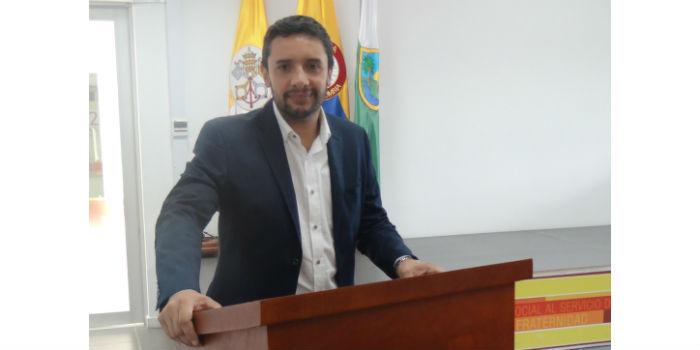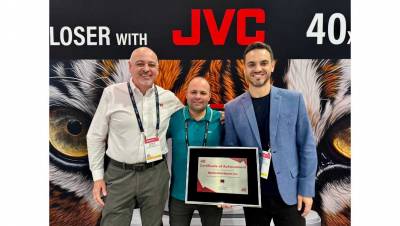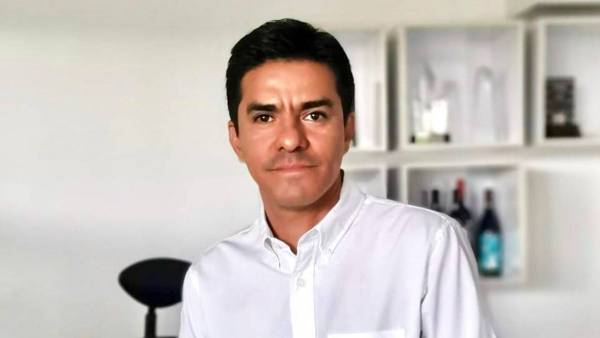 The boom of digital television must be relativized because in Latin America it is starting in some places. States should have a policy to promote DTT in the region.
The boom of digital television must be relativized because in Latin America it is starting in some places. States should have a policy to promote DTT in the region.
Luis Fernando Gutierrez
Luis Jorge Orcasitas
With the rapid and abundant changes that television has experienced in the last two decades, several Latin American countries have embarked on a dynamic, but no less complex career, in an attempt to devise and develop innovative and sometimes bold strategies, with the aim of diversifying their audiovisual industries; hence, from some state initiatives, they intend to generate new contributions to the cultural industries, especially in the field of film and television, obviously in a context of semi-industrialization but sufficiently capable of attracting audiences and users of local and regional markets, not in a vain attempt to compete against the "heavyweights" of the industry, but to generate a productive, alternative and competent circle.
Therefore, in this edition Dr. Leonardo González, professor and researcher at the National University of La Plata, explains in detail the situation of the audiovisual sector in Argentina, based on the proposal of the Audiovisual Poles undertaken under the mandate of President Cristina Fernández de Kirchner, also what the contributions of the third sector have meant, media convergence, the role of academia and, of course, the necessary changes that must be faced in times of phenomena such as Netflix, Amazon and YouTube.
In terms of decentralization and democratization of television in Argentina, what have been the results of the Audiovisual Poles in the context of the Argentine System of Open Digital Television?
Leonardo González: In principle, for me it is important to emphasize that in the last government of President Cristina Fernández a law on Audiovisual Communication Services was approved (that was the name), a law, basically, antitrust that, to put it in a very general way, distributes the spectrum of audiovisual media by 33% to each of these sectors: the private sector 33%, the third sector 33% and the State another 33%. The Audiovisual Poles, along with other promotion policies, what they achieve as a result is the accumulation of audiovisual production to be put on the air in different media created in the heat of the new law.
In this system, what types of creative development and outstanding proposals have been generated from the different regions?
Leonardo González: There is an important thing about the Poles and the Argentine Audiovisual Bank of Universal Contents, BACUA, which are federal proposals in front of an absolutely centralist television for its history, for its creation, because Argentina is a very centralist country in its policies, is that it achieves the creation of absolutely federal proposals, that is: from Patagonia to the north, passing through the center and all the regions of Argentina, are expressed in a new format that what it does is strengthen the regional identity, the national identity and finally put a little clarity in a place that, as only the market commanded, the only thing that appeared was what came out of the city of Buenos Aires.
What is the role that the third sector has played in the field of new developments in television in Argentina?
Leonardo González: It gave a very important place to the third sector, I am talking about that 33%, (it should be clarified that this law was later terminated by a presidential decree of the new government). In fact, today you can see in Argentina in the DTT system, television channels linked to Catholic points, guilds or Non-Governmental Organizations; this that always seemed like alternative communication, the new law gives it a place that makes it visible, institutionalizes it and gives it a percentage within this.
What are the contributions of the third sector in audiovisual production and creation?
Leonardo González: There the contributions are key even to rethink the models of products that are made. I insist again: models always linked to the market and the laws of the market, let's say today new formats appear, in that sense, the experiences of the university channels of the national universities (remember that there are more than fifty national universities), of which I believe (this should be checked) there must be about 18 or 20 university channels that are already on the air. Obviously it achieves, in the case, for example, of the city of La Plata, anyone who has DTT can already see the TV-University channel, which did not happen before. In this sense, the third sector, universities, unions and NGOs manage to put a new agenda. An agenda that, many times, the private hegemonic media do not think. Other topics. Another new agenda of topics.
According to the perception that the public has of the television that is generated in the Audiovisual Poles and that also generate the organisms of the third sector, is the participation of these entities viable in favor of a DTT of public service and of quality?
Leonardo González: Yes, of course it is viable; it should be viable. Now, in relation to the perception that the public has, there would be talking about audiences and audiences often need time to process new formats and I think that in that sense the audience is prepared to see new formats, not because they stop watching the Champions League match that is broadcast live with super cameras a private channel, but it does make audiences aware that there is a new format.
After the DTT boom and its innovative contributions to the audiovisual sector, what is the reaction of the media to the phenomenon of convergence?
Leonardo González: The boom in digital television should even be relativized in some terms because in Latin America it is starting in some places. I reiterate, in countries like Latin America, where cable penetration is so strong, DTT has a competitor there because let's not forget that those people who pay to watch cable (and who pay a lot), when they turn on the TV has approximately 100 channels. DTT is revolutionary because it goes from offering the five channels when you have a common antenna, to more than 30: in that it is revolutionary. But states should have a policy of encouragement.
What could be that policy of promotion?
Leonardo González: For a while in Argentina, the devices that allowed the installation of DTT were distributed. They were distributed to retirees and pensioners who received the minimum or to vulnerable families. Well that could be a policy of support and promotion of television.
And with regard to convergence, has it happened, is there evolution?
Leonardo González: I think that at the moment it is a bit stopped, but I also think that the interests of the large media corporations play there, which, obviously, would have no problem in some countries in sustaining DTT if they are going to keep it for them, and that is a bit what has happened in the case of the Spanish model, that is, the DTT channels were distributed among the owners of the channels of before; then there is a power dispute there.
Phenomena such as Netflix, Amazon, among others, seek to attract audiences to alternative platforms to television. What should traditional television do to avoid losing its audience to new proposals such as those described above?
Leonardo González: I think that the programmers of traditional television, and of what we can call generalist television, in these times must be breaking their heads to think about what they do because there is a place where generalist television, really, is closer to the viewer: to a more conservative, more historical viewer, including our case, people of 40 years, but that the generalist and traditional television moves away from this youth that handles other types of ways of watching television. I think that is a challenge that open television has because it is clear, in Argentina we see it, that traditional open television has lost 10 rating points. Where are those 10 rating points? I think they're on Netflix, on Amazon and in these new formats.
Should traditional televisions converge so as not to disappear?
Leonardo González: Of course. It's a bit what we've been saying before; traditional televisions have to think of new formats, new ways of reaching the public. Maybe I still wouldn't risk saying that television is going to disappear, which is what we heard 20 years ago about paper newspapers. I don't think so, I wouldn't risk that. There is still a large audience that prefers the evening news, the telenovela, the big show or programs like Big Brother or Master Chef and these world formats on open television. I would not yet declare the death of free-to-air television, it is in crisis: this is being seen by producers and programmers.
What kind of research should academia approach in the midst of an increasingly itinerant context and in constant technical and creative development? What is their role?
Leonardo González: Reviewing a traditional Wolton text on television that says something like that the academy was never too interested in thinking or writing or researching about television because it appeared as something minor (television), Dominique Wolton says that the elites have despised mass culture and within that culture television enters. I believe that communication careers, journalism schools, have to have research groups that follow these processes. On the one hand the processes of the hearings, on the other hand the processes of the contents, and also the processes of the laws, of the new technologies. I would separate it, then, in content, audiences and policies around the audiovisual.
What is the role of the public and its contribution to this whole issue of diversification and audiovisual creation, and as an alternative issue to the big media of the entertainment industry?
Leonardo González: In fact, I think that public television is fundamental. Today's public television gives rise to what private television does not. When everything about private television is related to ratings, advertising and the entry of money, public television is lucky, in that sense, not to depend on it. Public television should account for that: for what does not appear on private television, because private television relegates or makes invisible.
*Leonardo González has a degree and a PhD in Communication. Secretary General of the National University of La Plata. Director of the Center for Research and Development in Communication, Cultural Industries and Television (CeID-TV)

























Leave your comment